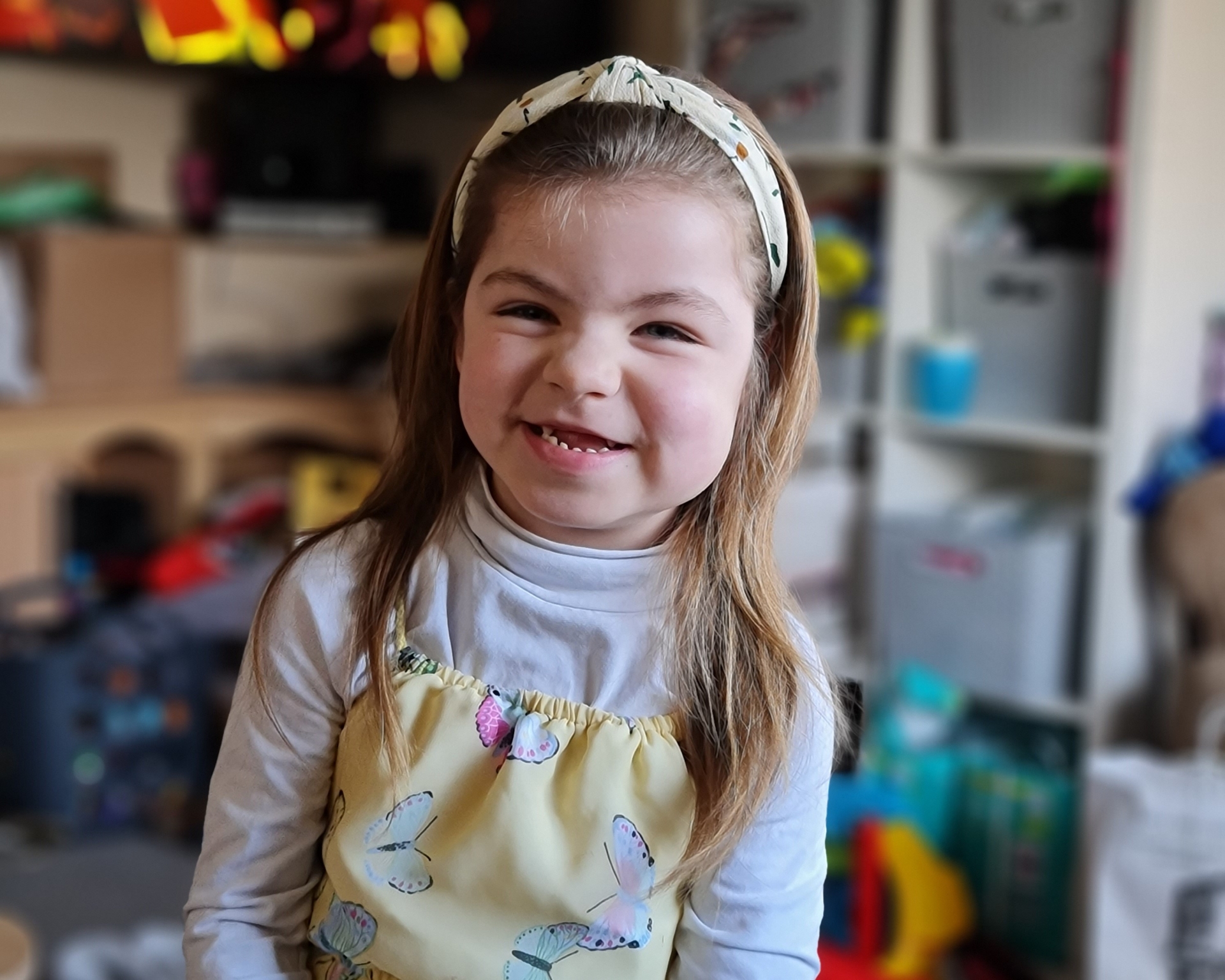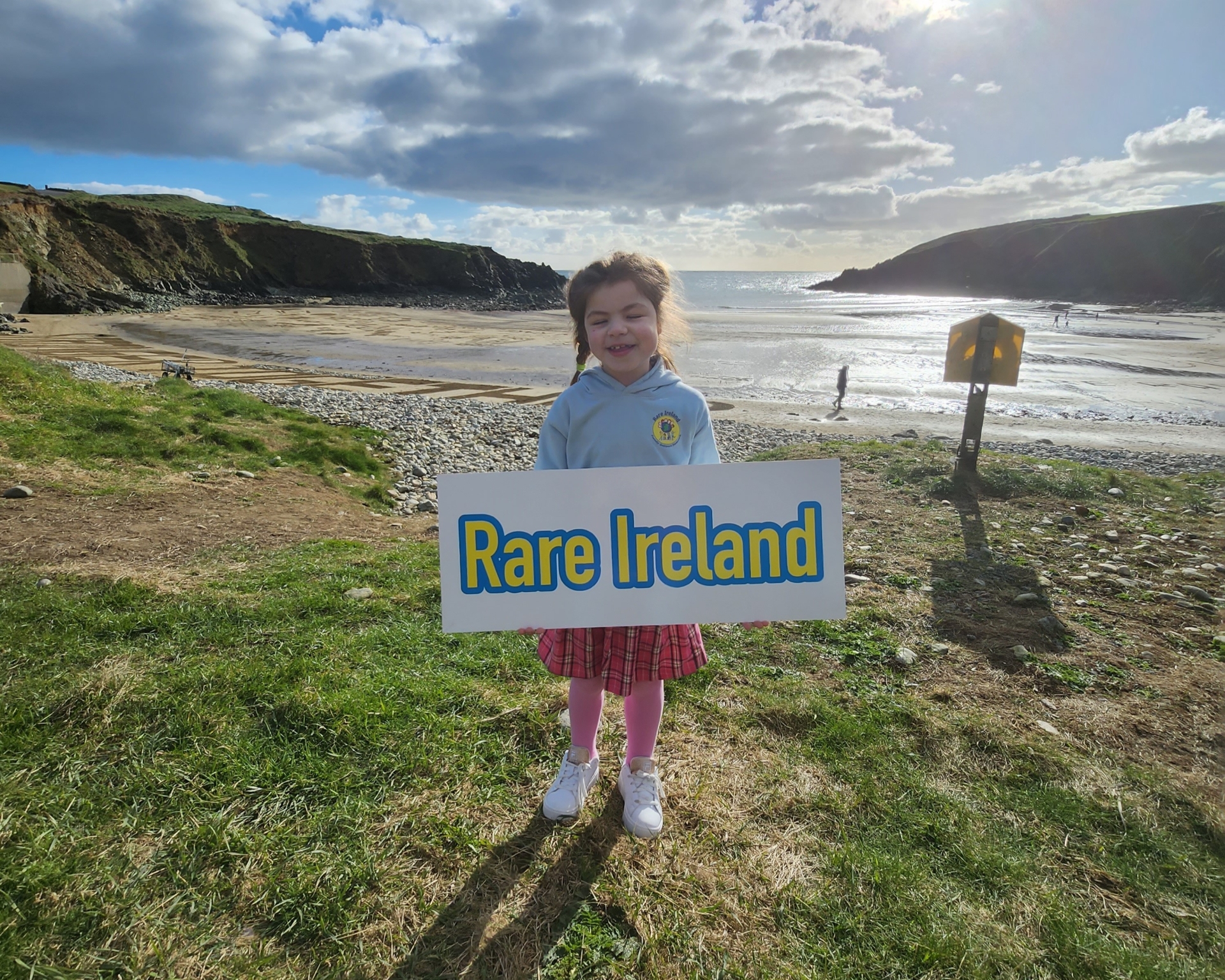
Rare Disease Day takes place February 29
Rare Disease Day 2024 will take place on Thursday, February 29.
Held on the last day of February each year, it is a global celebration which aims to raise awareness and generate change for the 300 million people worldwide living with a rare disease, their families and carers.
Rare Ireland is the voice for families living with rare conditions in Ireland. They are there to understand, support, and advocate for those affected by rare diseases.
Rare Disease Day is ‘basically about creating awareness’ and is ‘a day that we really like to celebrate’ said Westport native Selina Neal, who is a member of the Rare Ireland committee.
Despite the day itself being February 29, there are many events taking place in the lead up to raise awareness for Rare Disease Day, including cold water dips, coffee mornings, and a summer skydive by parents and committee members.
The parent run charity was established in 2017 by two mothers, Laura Egan and Louise O'Keefe, after they witnessed the lack of support and information available to them at the time of their children’s diagnosis.
“They were two parents who felt that they were given a diagnosis of their child's rare condition and that was it. They were sent out with no more information, no help whatsoever, not knowing what the future is going to bring” said the Westport woman.
“So they set up a Facebook group to begin with, and it was just kind of trying to help other parents who were going through the same thing. And from that it's developed into a charity that's able to help” she explained.
Rare Ireland has a board of trustees that manage the charity in accordance with the principles set out in our constitution.
Our committee also consists of several trustees and currently has 12 parents, all of whom contribute on a voluntary basis, to support our members and raise awareness of the many challenges facing the rare community.
“We're supporting almost 1700 families across Ireland, and that's done through one on one support” said Ms Neal.
The charity provides subsidies for different therapies, as therapies can be very expensive with long waiting lists.
The organisation also offers genetic counselling from a top consultant, Dr Anand Saggar.
Dr Saggar frequently comes over from the UK, to provide genetic counselling for members, subsidised by Rare Ireland.
Ms Neal said at the time of diagnosis ‘you're not given any more information’ and lengths of wait lists means you could be waiting ‘up to five years to get any information about what this could be’.
The charity providing genetic counselling means they can help families understand their child's diagnosis within a matter of months.

Maya, aged 8
Ms Neal was one of these parents left with no information after her eight-year-old daughter, Maya, was diagnosed with Beckwith Friedman syndrome at birth.
“When I was pregnant with Maya, we didn't really know anything. I was going, ‘something's not right here’ and I basically got told by doctors, ‘well, your last baby was fine, so this baby will be fine’, which is probably the worst statement you could say to anyone” Ms Neal explained.
Maya was born through an emergency section in 2015. She was born with an extremely large, protruding, tongue, and it looked like there was a line drawn down the centre of her body; half of her body was larger than the other. Shortly after birth, Maya was taken to the baby unit due to low glucose levels.
Ms Neal said she and her partner ‘didn't know anything about rare diseases’ and had only been informed about more common conditions, such as down syndrome.
Ms Neal said that they were ‘lucky’ that Maya had very clinical features, however, when Maya was just a few hours old, they were told that doctors believed Maya had Beckwith Wiedemann Syndrome (BWS), and she was transferred to Temple Street Children's Hospital.
Maya spent the first five weeks of her life in Temple Street, and still Ms Neal and her family ‘knew nothing’.
“No one could tell me anything about it. We did see a geneticist who explained a bit about it, but there wasn't really any information. We didn't know any other parents, we didn't know who to get in touch with, where to go or what to do; and none of this information was given.
“That was a really hard time for us. We struggled. There were an awful lot of questions. Did we do this? Did we do something wrong? Is there something we could do to fix this?”
Ms Neal says they were ‘on that journey for a few years until I did manage to find support networks in the UK and America’.
Now, nearing her ninth birthday, Maya is a ‘pretty healthy kid’, described by her mother as a ‘little diva’.
“She's been through a bit now; she had tumours when she was about eight months old. She's had a couple of surgeries” explained Ms Neal.
Maya’s condition, BWS, is an overgrowth syndrome, where parts of her body can grow faster than others’, but she also has other conditions such as hemihypertrophy and hyperinsulism.
“That's something we've been monitoring her entire life. Like, she's been out of hospital checking for scans for tumours, and she's been out checking for her glucose levels and all that. So it's just an ongoing thing with her, but she's a really happy, healthy little person” told her mother.

Maya, raising awareness for Rare Ireland
As Ireland’s only charity supporting families living with rare diseases, Rare Ireland has become an invaluable source of support to its members.
The lack of education and awareness surrounding rare disease is evident in Ireland.
The aim is to create as much awareness and support as possible to families around Ireland, something Ms Neale ‘didn’t exactly have’.
“There are so many different conditions in our group and our big thing is, even if a condition isn't exactly the same, a lot of them have similar features, characteristics, and issues that another parent has been through, and they're able to provide the support and information for other families” she added.
The charity doesn’t just support financially, but mentally.
Families living with rare conditions face many prolonged hospital stays, thus creating many challenges. To help lift their spirits and let them know they are in our thoughts, Rare Ireland sends gift boxes and care packages to the hospital.
People can support Rare Disease Day and Rare Ireland by lighting up for Rare Ireland, sharing stories, hosting events, and donating.
“We always need support; donations go directly to helping families across the country”.
You can donate on Rare Ireland’s website, Facebook, or Instagram.
Subscribe or register today to discover more from DonegalLive.ie
Buy the e-paper of the Donegal Democrat, Donegal People's Press, Donegal Post and Inish Times here for instant access to Donegal's premier news titles.
Keep up with the latest news from Donegal with our daily newsletter featuring the most important stories of the day delivered to your inbox every evening at 5pm.